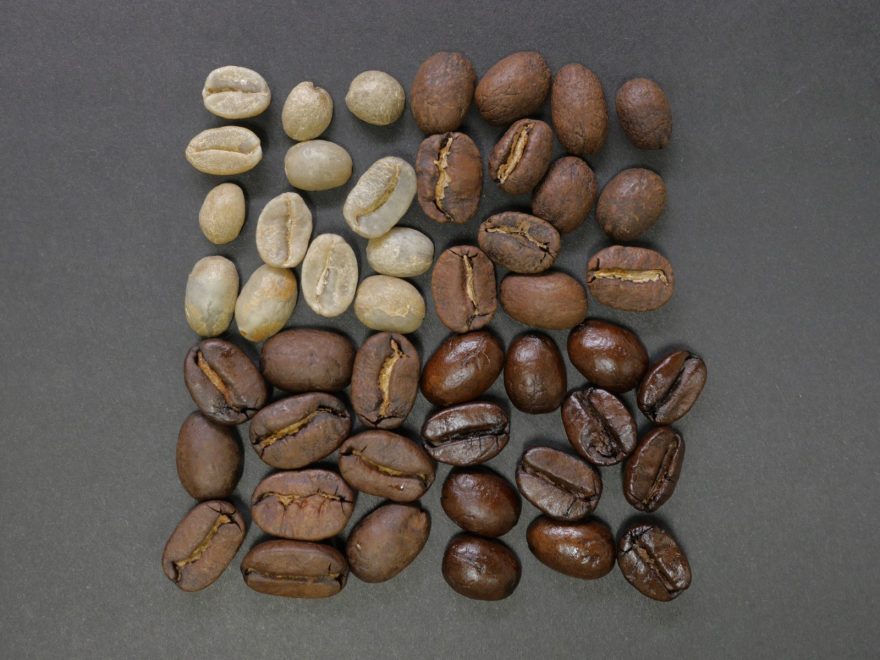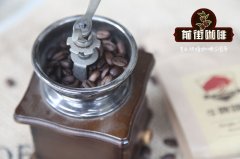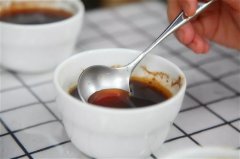What kind of coffee beans are suitable for beginners? How to buy coffee beans for the first time?

Professional coffee knowledge exchange more coffee bean information please follow the coffee workshop (Wechat official account cafe_style)
I believe that many coffee rookies want to get out of the instant, but seeing the complicated instructions of all kinds of coffee beans and coffee powder will inevitably get confused, and the result of buying blindly at will is: what kind of bad coffee is this? It tastes terrible!
So what is the best coffee bean? Of course, what suits you best is the best, but this sentence looks like nonsense. If you haven't drunk enough coffee or tried enough varieties, how do you know which one is right? Is the item that you have been drinking for a long time necessarily the most suitable? Look at the flavor description of the words like it must be suitable for the taste?
Today, Qianjie Coffee will first jump away from the subjective and erratic flavor of coffee and share with you some practical tips for choosing and buying coffee beans.
First, look at the packaging information and introduction
All the information about coffee beans is on the label, and when you can read the label, it's easy to pick the best coffee beans.
Coffee beans
The principle that will never change, buy coffee beans (whole beans). Coffee powder is very convenient, but in order to save such a little time, it is not worth it, the taste is really too bad. Air is the enemy of coffee, which begins to oxidize when it is ground into powder, meaning the taste dissipates more quickly. The closer you get to grinding beans when you brew coffee, the fresher and more fragrant it is.
Baking date
The first element is that the baking date is completely different from the "shelf life". Although it feels like coffee can be kept indefinitely, this is not the case. Of course, if you drink coffee beans for a year, you may not get sick. Coffee beans may not be too "bad", but they are definitely not that good.
When the coffee bean is roasted, its chemical composition begins to change immediately. Coffee beans begin to emit carbon dioxide from roasting, a process known as "degassing" in English. When the coffee beans begin to exhaust, the oil in the beans will begin to oxidize, indicating that the flavor of the beans will begin to decline. The freshness of coffee beans is subjective, but the recommended coffee beans are consumed from four days to two weeks after roasting, but how the coffee is extracted can also affect this period.
For example, if you like hand cooking, it is recommended to start using it in the first week after baking, and the sooner you use it, the better, because the flavor and aroma of coffee is the most perfect and complete at this time. But if you like to make espresso (coffee maker), the beans can be "kept" for a little longer, about seven to nine days before you start using them. If you leave it a little longer, it will be suitable for making cold coffee.
These are just some suggested values. Remember to experiment to find the method that best suits your taste.
Baker
With good luck and plenty of cafes in first-tier cities, it's easy to get to know people who bake coffee. Get to know them, understand their ideas and the way they bake beans, increase interaction, not just the business of buying coffee, but also build a social network, which is very helpful for learning in coffee.
The coffee beans that will indicate who the baker is on the packaging label is worthy of careful attention. Because it means that he cares about his "work" and has a much higher chance of buying good coffee.
Place of Origin
Altitude, soil, rainfall and sunlight all contribute to the final taste of coffee beans, so the origin of coffee beans is an important indicator of how they are tasted. Coffee trees thrive along the "coffee bean belt", which is the area between the Tropic of Cancer and the North. If your coffee bag or barista can't tell you where this bag of coffee is grown, you may need to reconsider your options.
Coffee is produced in more than 60 countries around the world, but it's better to start with some famous producing areas and learn about their flavor characteristics before switching to more exotic varieties. In countries such as Hawaii, Brazil, Ethiopia, Kenya and so on, you can first understand the characteristics of each producing area and see which flavor you prefer.
Between the extremely unique climate and processing technology, exploring the flavor of coffee according to the region is a great enjoyment. Even if you already have one or two favorite producing areas, it is recommended to try different producing areas once in a while to discover something new.
Fair trade
In the field of food labelling, Fairtrade is an amorphous description, which means. Well, it depends on who you ask. You may see all kinds of Fair Trade labels on the packaging of coffee and other products. If this is an important consideration for you, it's a good idea to familiarize yourself with some of the more well-known labels and their meanings.
Will Fairtrade be good coffee? It's really hard to say, but Fair Trade represents that coffee producers, their employees, and their living environment are at least not being oppressed. What is produced by a good environment is usually not too bad. If you are interested, you can study which fair trade is most in line with your idea, and when you find it, it will be easier to choose.
Organic authentication
Organic is often misused in marketing to increase the price of products. In fact, organic certification is a very complicated thing. Different organic certification has different standards. Some organic certification can only prove that farmers do not use chemical pesticides and fertilizers. It does not mean that there is no chemical residue at all. And like other organic crops, organically produced coffee does not represent high quality. Even if there is no "organic certification", it does not necessarily mean that it is "non-organic". After all, generations of poor coffee farmers can neither afford chemical fertilizers and pesticides, nor can they afford the high cost of certification.
In other words, to find the best coffee beans, you have to taste them yourself. Because any kind of trade method or production certification has nothing to do with whether the coffee is good or not.
The roasting degree of coffee beans
Even if it is the same batch of beans, different baking methods will bring different flavors. Generally speaking, the roasting degree of coffee beans can be divided into three categories: shallow, medium and deep.
Shallow baking: lightly baked beans are not heated for a long time, and the color is relatively tender and light. Such coffee beans are sour, hardly bitter, and high in caffeine, making them suitable for making American coffee.
Moderate roasting: moderately roasted coffee beans show a caramel color and are relatively bright. Its sour taste is obviously lower than that of shallow baking, and the bitter taste begins to appear, but it is generally balanced, smooth, light sweet and smooth, mainly caramel and chocolate, which is a commonly used baking degree.
Deep roasting: the deep-roasted coffee beans are black and bright and oily. At this time, the coffee beans have basically no sour taste, and the bitter taste occupies the absolute sense of existence, which is very suitable for Italian concentration.
Comprehensive:
For beginners who have just started from instant dissolving, or heavy mouth lovers, deep baking is recommended.
Coffee lovers who like balanced hierarchy are recommended for moderate roasting.
A glutton who can enjoy the sour fruit of coffee is recommended for light roasting.
Of course, there are different heat between light, medium and heavy. The heavier the coffee is, the lower the sour taste, the higher the bitterness, and the lower the caffeine content, so you can choose according to your hobby.
END
Important Notice :
前街咖啡 FrontStreet Coffee has moved to new addredd:
FrontStreet Coffee Address: 315,Donghua East Road,GuangZhou
Tel:020 38364473
- Prev

The purpose of baking is to explore the most suitable baking degree | which is better, light baking or deep baking?
Professional coffee knowledge exchange more coffee bean information please follow the coffee workshop (Wechat official account cafe_style) how coffee beans changed from raw beans to cooked beans? Why does coffee have so many flavors? Let's take a look at the role of roasting in coffee from seed to cup. The purpose of baking is to find out the most suitable baking degree before eating.
- Next

What kind of coffee beans is more suitable for beginners? How do beginners buy coffee beans online?
Professional coffee knowledge exchange more coffee bean information please follow the coffee workshop (Wechat official account cafe_style) spend time and energy on making coffee, most of them are coffee lovers. But when you spend a lot of time making coffee and end up drinking coffee with a strange taste and a bad taste, you must be in a terrible mood. As a.
Related
- Beginners will see the "Coffee pull flower" guide!
- What is the difference between ice blog purified milk and ordinary milk coffee?
- Why is the Philippines the largest producer of crops in Liberia?
- For coffee extraction, should the fine powder be retained?
- How does extracted espresso fill pressed powder? How much strength does it take to press the powder?
- How to make jasmine cold extract coffee? Is the jasmine + latte good?
- Will this little toy really make the coffee taste better? How does Lily Drip affect coffee extraction?
- Will the action of slapping the filter cup also affect coffee extraction?
- What's the difference between powder-to-water ratio and powder-to-liquid ratio?
- What is the Ethiopian local species? What does it have to do with Heirloom native species?

